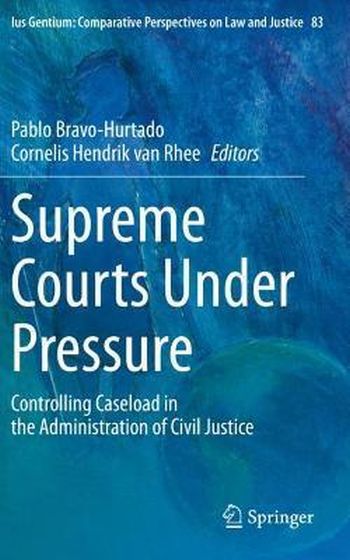
This book discusses civil litigation at the supreme courts of nine jurisdictions - Argentina, Austria, Croatia, England and Wales, France, Germany, Italy, Spain and the United States - and focuses on the available instruments used to keep the caseload of these courts within acceptable limits. Such instruments are necessary in order to allow supreme courts to fulfil their main duties, that is, the administration of justice in individual cases (private function) and providing for the uniformity and development of the law within their respective jurisdictions (public function). If the number of cases at the supreme court level is too high, the result is undue delays, which are mainly problematic with regard to the private function. It may also put the quality of the court's judgments under pressure, which can affect its public and private function alike. Thus, measures aimed at avoiding excessive caseloads need to take both functions into account.
Increasing the capacity of the court to handle larger numbers of cases may result in the court being unable to adequately fulfil its public function, since large numbers of court decisions make it difficult to guarantee the uniformity of the law and its development. Therefore, a balanced approach is needed to safeguard capacity and quality. As shown by the contributions gathered here, the nature of reform in this area is not the same everywhere. There are a variety of reasons for this heterogeneity, ranging from different understandings of the caseload problem itself, local conceptions regarding the purpose of the Supreme Court, and strong entitlements concerning the right to appeal to budgetary restrictions and extremely rigid legislation. The book also shows that the implementation of similar solutions to case overload, such as access filters, may have different effects in different jurisdictions. The conclusion might well be that the problem of overburdened courts is multifactorial and context-dependent, and that easy, one-size-fits-all solutions are hard to find and perhaps even harder to implement.